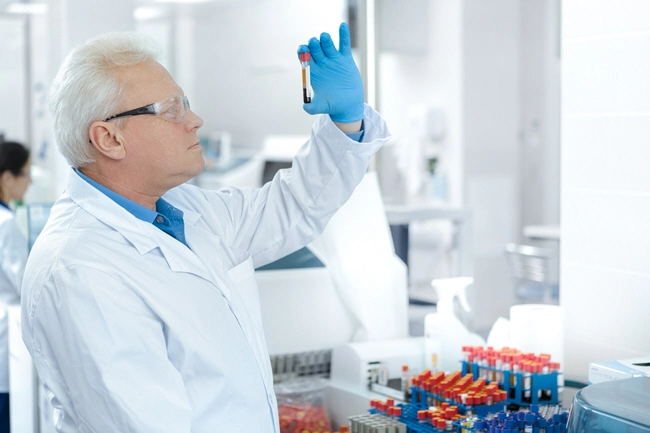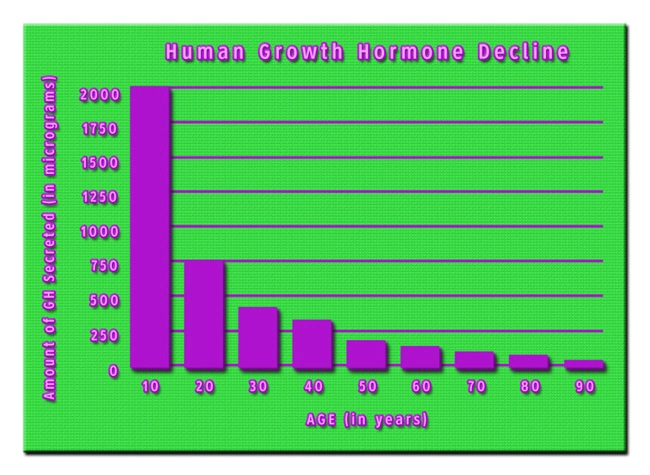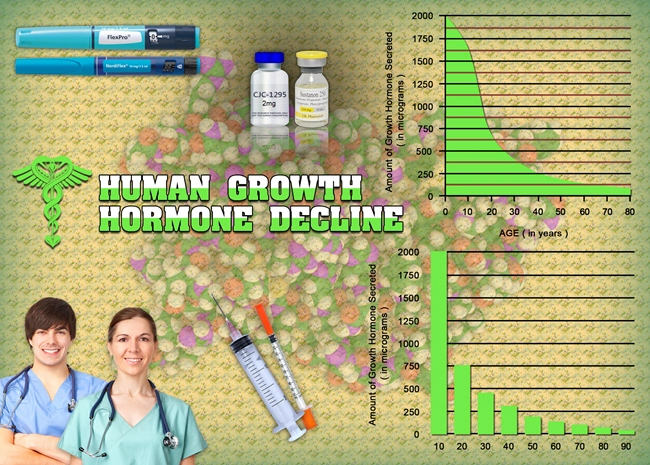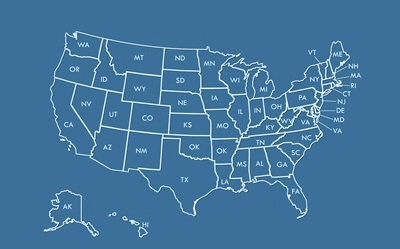
Introduction to Late-Onset Hypogonadism
Late-Onset Hypogonadism (LOH), commonly referred to as age-related low testosterone, is a clinical and biochemical syndrome characterized by a deficiency in serum testosterone levels in conjunction with specific signs and symptoms. This condition predominantly affects men over the age of 40, with prevalence increasing with age. Symptoms may include decreased libido, erectile dysfunction, fatigue, loss of muscle mass, and mood disturbances. Understanding LOH is crucial for American men, as it can significantly impact quality of life and overall health.
The Importance of Patient Advocacy
Patient advocacy plays a pivotal role in the management and awareness of LOH. Advocacy empowers men to seek timely diagnosis and appropriate treatment, thereby improving their health outcomes. In the context of LOH, advocacy involves educating oneself and others about the condition, engaging with healthcare providers, and participating in support networks. By becoming advocates, men can break the stigma surrounding LOH and encourage open discussions about men's health issues.
Challenges in Diagnosis and Treatment
Diagnosing LOH can be challenging due to the overlap of symptoms with other age-related conditions. It requires a comprehensive evaluation, including a thorough medical history, physical examination, and laboratory tests to measure serum testosterone levels. Treatment typically involves testosterone replacement therapy (TRT), which can alleviate symptoms and improve quality of life. However, access to TRT and other treatments can be hindered by factors such as cost, insurance coverage, and lack of awareness among healthcare providers. Advocacy can help address these barriers by promoting better access to care and encouraging research into more effective treatment options.
The Role of Support Networks
Support networks, including patient advocacy groups and online communities, are invaluable resources for men with LOH. These networks provide a platform for sharing experiences, gaining emotional support, and accessing educational materials. They also play a crucial role in raising awareness and advocating for policy changes that can improve the lives of those affected by LOH. By joining these networks, men can find solidarity and strength in their journey towards better health.
Advocacy in Action: Real-Life Impact
The impact of patient advocacy on LOH can be seen in real-life examples where men have successfully navigated the healthcare system to receive the care they need. For instance, advocacy groups have been instrumental in lobbying for insurance coverage of TRT, making it more accessible to those who need it. Additionally, advocacy efforts have led to increased public awareness campaigns, which help destigmatize LOH and encourage men to seek help. These actions demonstrate the tangible benefits of advocacy in improving the lives of American men with LOH.
Encouraging Men to Become Advocates
Encouraging American men to become advocates for LOH involves fostering a culture of openness and proactive health management. Men can start by educating themselves about the condition and its symptoms, and then sharing this knowledge with friends and family. Engaging with healthcare providers to discuss symptoms and treatment options is also crucial. By taking these steps, men can not only improve their own health but also contribute to a broader movement towards better men's health advocacy.
Conclusion: The Path Forward
Late-Onset Hypogonadism is a significant health issue that affects many American men, yet it remains underdiagnosed and undertreated. Patient advocacy is essential in addressing this gap by promoting awareness, improving access to care, and supporting those affected. As men become more involved in advocacy efforts, they can help create a future where LOH is recognized and managed effectively, leading to improved health and well-being for all.
Contact Us Today For A Free Consultation
Dear Patient,
Once you have completing the above contact form, for security purposes and confirmation, please confirm your information by calling us.
Please call now: 1-800-380-5339.
Welcoming You To Our Clinic, Professor Tom Henderson.

- Exploring Alternative Therapies for Late-Onset Hypogonadism in American Males [Last Updated On: February 25th, 2025] [Originally Added On: February 25th, 2025]
- Late-Onset Hypogonadism: Symptoms, Diagnosis, and Comprehensive Management Strategies [Last Updated On: March 18th, 2025] [Originally Added On: March 18th, 2025]
- Economic Impact of Late-Onset Hypogonadism in Aging U.S. Men: Challenges and Strategies [Last Updated On: March 18th, 2025] [Originally Added On: March 18th, 2025]
- Late-Onset Hypogonadism: Impact on Muscle Mass and Treatment Options in American Men [Last Updated On: March 18th, 2025] [Originally Added On: March 18th, 2025]
- Genetic Factors in Late-Onset Hypogonadism: Insights for American Males [Last Updated On: March 18th, 2025] [Originally Added On: March 18th, 2025]
- Innovative Treatments and Future Directions for Late-Onset Hypogonadism in American Males [Last Updated On: March 18th, 2025] [Originally Added On: March 18th, 2025]
- Managing Late-Onset Hypogonadism in Men Over 40: Diagnosis, Treatment, and Lifestyle [Last Updated On: March 20th, 2025] [Originally Added On: March 20th, 2025]
- Late-Onset Hypogonadism: Impact on Fertility and Management in American Men [Last Updated On: March 20th, 2025] [Originally Added On: March 20th, 2025]
- Managing Late-Onset Hypogonadism: Symptoms, Screening, and Lifestyle Strategies for American Men [Last Updated On: March 20th, 2025] [Originally Added On: March 20th, 2025]
- Late-Onset Hypogonadism: Impacts on Mood, Energy, and Treatment Approaches [Last Updated On: March 21st, 2025] [Originally Added On: March 21st, 2025]
- Late-Onset Hypogonadism in American Men: Diagnosis, Treatment, and Vitality Maintenance [Last Updated On: March 21st, 2025] [Originally Added On: March 21st, 2025]
- Late-Onset Hypogonadism: Impact on Sleep and Health in American Men [Last Updated On: March 22nd, 2025] [Originally Added On: March 22nd, 2025]
- Managing Late-Onset Hypogonadism: Nutrition, Diet, and Lifestyle Strategies for American Men [Last Updated On: March 22nd, 2025] [Originally Added On: March 22nd, 2025]
- Late-Onset Hypogonadism in American Men: Symptoms, Treatment, and Lifestyle Management [Last Updated On: March 22nd, 2025] [Originally Added On: March 22nd, 2025]
- Late-Onset Hypogonadism in American Males: Prevalence, Impact, and Management Strategies [Last Updated On: March 22nd, 2025] [Originally Added On: March 22nd, 2025]
- Holistic Management of Late-Onset Hypogonadism in American Males: A Comprehensive Approach [Last Updated On: March 23rd, 2025] [Originally Added On: March 23rd, 2025]
- Early Intervention Benefits for Late-Onset Hypogonadism in American Men [Last Updated On: March 23rd, 2025] [Originally Added On: March 23rd, 2025]
- Long-term Effects of Late-Onset Hypogonadism on American Men's Health and Well-being [Last Updated On: March 23rd, 2025] [Originally Added On: March 23rd, 2025]
- Managing Late-Onset Hypogonadism: Symptoms, Treatment, and Lifestyle Strategies for American Men [Last Updated On: March 23rd, 2025] [Originally Added On: March 23rd, 2025]
- Late-Onset Hypogonadism: Overcoming Stigma and Enhancing Life Quality in American Men [Last Updated On: March 23rd, 2025] [Originally Added On: March 23rd, 2025]
- Dietary Strategies to Manage Late-Onset Hypogonadism in American Men [Last Updated On: March 23rd, 2025] [Originally Added On: March 23rd, 2025]
- Diagnosing Late-Onset Hypogonadism in American Males: A Comprehensive Guide [Last Updated On: March 24th, 2025] [Originally Added On: March 24th, 2025]
- Exploring the Link Between Late-Onset Hypogonadism and Diabetes in American Males [Last Updated On: March 24th, 2025] [Originally Added On: March 24th, 2025]
- Late-Onset Hypogonadism: Cognitive Impacts and Management in American Men [Last Updated On: March 24th, 2025] [Originally Added On: March 24th, 2025]
- Exercise Boosts Testosterone: Managing Late-Onset Hypogonadism in American Males [Last Updated On: March 24th, 2025] [Originally Added On: March 24th, 2025]
- Managing Late-Onset Hypogonadism: Symptoms, Diagnosis, and Treatment in American Men [Last Updated On: March 24th, 2025] [Originally Added On: March 24th, 2025]
- Managing Late-Onset Hypogonadism: Diagnosis, Treatment, and Independence for Aging American Men [Last Updated On: March 24th, 2025] [Originally Added On: March 24th, 2025]
- Hormone Replacement Therapy: Managing Late-Onset Hypogonadism in American Men [Last Updated On: March 24th, 2025] [Originally Added On: March 24th, 2025]
- Late-Onset Hypogonadism: Understanding Treatments and Managing Side Effects [Last Updated On: March 25th, 2025] [Originally Added On: March 25th, 2025]
- Understanding Late-Onset Hypogonadism: Symptoms, Diagnosis, and Management in Aging Men [Last Updated On: March 25th, 2025] [Originally Added On: March 25th, 2025]
- Stress and Late-Onset Hypogonadism: Impact and Management in American Males [Last Updated On: March 25th, 2025] [Originally Added On: March 25th, 2025]
- Understanding Late-Onset Hypogonadism: Myths, Facts, and Effective Management Strategies [Last Updated On: March 25th, 2025] [Originally Added On: March 25th, 2025]
- Managing Late-Onset Hypogonadism: A Multidisciplinary Approach for American Men [Last Updated On: March 25th, 2025] [Originally Added On: March 25th, 2025]
- Community Support Enhances Late-Onset Hypogonadism Management in American Males [Last Updated On: March 25th, 2025] [Originally Added On: March 25th, 2025]
- Managing Late-Onset Hypogonadism: Emotional Journey and Support for American Men [Last Updated On: March 25th, 2025] [Originally Added On: March 25th, 2025]
- Late-Onset Hypogonadism: Impact on American Men's Careers and Workplace Strategies [Last Updated On: March 25th, 2025] [Originally Added On: March 25th, 2025]
- Late-Onset Hypogonadism: Impact on Men's Health and Intimate Relationships in America [Last Updated On: March 25th, 2025] [Originally Added On: March 25th, 2025]
- Late-Onset Hypogonadism in American Males: Education, Symptoms, and Management Strategies [Last Updated On: March 26th, 2025] [Originally Added On: March 26th, 2025]
- Late-Onset Hypogonadism: Health Risks and Treatment Options for American Men [Last Updated On: March 26th, 2025] [Originally Added On: March 26th, 2025]
- Late-Onset Hypogonadism: Symptoms, Diagnosis, and Management in American Men [Last Updated On: March 26th, 2025] [Originally Added On: March 26th, 2025]
- Late-Onset Hypogonadism: Health Impacts and Financial Challenges for American Men [Last Updated On: March 26th, 2025] [Originally Added On: March 26th, 2025]
- Late-Onset Hypogonadism: Symptoms, Diagnosis, and Management Strategies for American Men [Last Updated On: March 26th, 2025] [Originally Added On: March 26th, 2025]
- Legal Aspects of Late-Onset Hypogonadism: Diagnosis, Treatment, and Rights in the U.S. [Last Updated On: March 27th, 2025] [Originally Added On: March 27th, 2025]
- Managing Late-Onset Hypogonadism: Symptoms, Diagnosis, and Treatment for American Men [Last Updated On: March 27th, 2025] [Originally Added On: March 27th, 2025]
- Late-Onset Hypogonadism: Cultural Impacts on American Men's Health and Treatment [Last Updated On: March 27th, 2025] [Originally Added On: March 27th, 2025]
- Late-Onset Hypogonadism: Impact, Detection, and Management in American Males [Last Updated On: March 28th, 2025] [Originally Added On: March 28th, 2025]
- Advocating for Better Care in Late-Onset Hypogonadism: A Call to Action for American Men [Last Updated On: March 28th, 2025] [Originally Added On: March 28th, 2025]
- Managing Late-Onset Hypogonadism: Diagnosis, Treatments, and Lifestyle Strategies for American Men [Last Updated On: March 28th, 2025] [Originally Added On: March 28th, 2025]
- Technological Advances in Diagnosing Late-Onset Hypogonadism in Aging American Men [Last Updated On: March 28th, 2025] [Originally Added On: March 28th, 2025]
- Late-Onset Hypogonadism: Symptoms, Impact, and Vital Role of Family Support in American Males [Last Updated On: March 29th, 2025] [Originally Added On: March 29th, 2025]
- Late-Onset Hypogonadism: Understanding Diagnosis and Impact on American Men's Health [Last Updated On: March 29th, 2025] [Originally Added On: March 29th, 2025]
- Managing Late-Onset Hypogonadism: Diet, Exercise, Sleep, and Stress Strategies for American Men [Last Updated On: March 30th, 2025] [Originally Added On: March 30th, 2025]
- Managing Late-Onset Hypogonadism: The Vital Role of Mental Health Professionals [Last Updated On: March 30th, 2025] [Originally Added On: March 30th, 2025]
- Late-Onset Hypogonadism's Impact on American Men's Self-Esteem: A Comprehensive Overview [Last Updated On: April 3rd, 2025] [Originally Added On: April 3rd, 2025]
- Late-Onset Hypogonadism in American Males: Peer Support and Holistic Management [Last Updated On: April 4th, 2025] [Originally Added On: April 4th, 2025]
- Navigating Insurance Coverage for Late-Onset Hypogonadism Treatment in American Men [Last Updated On: April 4th, 2025] [Originally Added On: April 4th, 2025]
- Late-Onset Hypogonadism: Social Impacts and Support for American Men [Last Updated On: April 5th, 2025] [Originally Added On: April 5th, 2025]
- Research Advances in Late-Onset Hypogonadism: Diagnosis, Treatment, and Future Prospects [Last Updated On: April 5th, 2025] [Originally Added On: April 5th, 2025]
- Managing Late-Onset Hypogonadism: Stress Reduction Strategies for American Men [Last Updated On: April 6th, 2025] [Originally Added On: April 6th, 2025]
- Understanding Late-Onset Hypogonadism: Symptoms, Diagnosis, and Management for American Males [Last Updated On: April 7th, 2025] [Originally Added On: April 7th, 2025]
- Nutritionists' Role in Managing Late-Onset Hypogonadism Through Diet and Lifestyle [Last Updated On: April 10th, 2025] [Originally Added On: April 10th, 2025]
- Managing Late-Onset Hypogonadism: Strategies for American Men's Mental Health [Last Updated On: April 10th, 2025] [Originally Added On: April 10th, 2025]
- Late-Onset Hypogonadism in American Males: Symptoms, Diagnosis, and Management Strategies [Last Updated On: April 11th, 2025] [Originally Added On: April 11th, 2025]
- Managing Late-Onset Hypogonadism: Symptoms, Diagnosis, and Treatment for American Men [Last Updated On: April 12th, 2025] [Originally Added On: April 12th, 2025]
- Managing Late-Onset Hypogonadism: Exercise and Lifestyle Strategies for American Men [Last Updated On: April 13th, 2025] [Originally Added On: April 13th, 2025]









